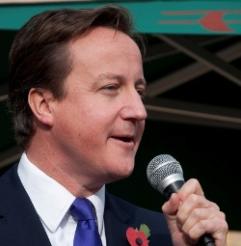The Conservative and Liberal Democrat coalition was the only practical one. Andrew Scadding warns we may even grow to like it.
Five days on, we have a decision. It has brought us a Prime Minister who, unlike his rather saturnine predecessor, seems barely old enough to shave and a deputy PM who speaks fluent Dutch. What a rich and varied place the House of Commons has become. I think we are entitled to ask three questions; is it a good decision; was it properly considered; and what does it matter to us?
On day one, it is impossible to address the third question, it is going to be ‘suck it and see’. On the other two, I think we can form a view.
In reality it was the only decision available which offered any sort of promise of stability and the opportunity to deal with the economic crisis from a position of political strength. The Lib-Dems had no real chance of forming a working partnership with Labour. The arithmetic didn’t work, and there are anyway serious allegations that Labour’s move to open talks was insincere. The allegation is that it was a devious move to persuade Gordon Brown to quit the party leadership immediately. The fear was that he might hang on for weeks or months before leaving. Anticipating an autumn general election, the party bigwigs wanted him out straight away so that the ritual process of bloodletting and electing a new leader can begin immediately.
So yes, it is a good decision, because it was the only practical decision, but we could have spotted that on Friday. What took so long? We are used to seeing the vote, the count, the exit and the new man in place all happening within 36 hours maximum, sometimes less. This conclusion, to the fury of the extraordinary Tory press, took five days.
Apparently in European terms this is still a rapid result. When the Germans or the Irish craft a coalition government they do it carefully, take their time, in the hope that the resulting agreement will be watertight and will endure.
There are three main areas to cover. There are policies on which both parties agree, and which can be safely pursued; banking reform, for example. There are policies on which they disagree and on which they can agree to disagree and ignore because there is no pressing urgency to do anything – lifting the inheritance tax threshold seems to have put into this category. And there are policies where they disagree and where some level of agreement is fundamental to the parties working together. It is the last group that takes the time. Unless these policies are clearly identified and agreed, they can pop up like a rake in the grass and destroy the new government.
We Brits have little experience of this sort of negotiation. We can only hope that, gifted amateurs though they may be, Cameron and Clegg have done the job as best they can – and in doing so may have forged a working relationship that will enable them to deal with unexpected threats to their government.
The new government has already set the next election date in May 2015. This is a clear signal that they intend the coalition to endure for a full Parliament. At this stage it is impossible to say whether or not that is a realistic – or even a desirable – ambition.
But who knows? We may come to like coalition government. If we can achieve economic stability, get on top of the debt problem, and if we can avoid any excesses of absolute power, such as a Poll Tax or an invasion of Iraq, coalition may be something that Britain can and should take to its heart.
So this marriage of convenience may have the potential to turn into true love. How very sweet. Not often you can say that about politics.










